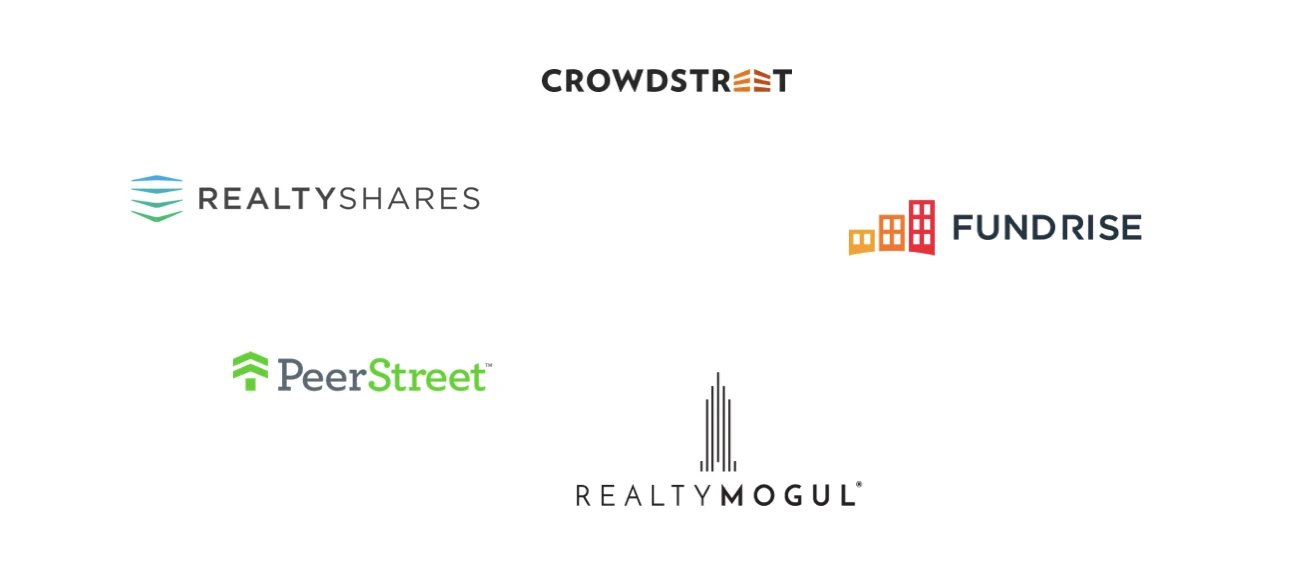Real Estate Crowdfunding: the Future of Real Estate Investing
In a world where traditional real estate investing seems exclusive to a select few, imagine a revolutionary approach that opens doors to everyone, transforming the landscape of investment possibilities.
Real estate crowdfunding has emerged as a game-changer, reshaping the way individuals participate in the real estate market. This innovative concept harnesses the power of technology and collective funding to allow investors to pool their resources and invest in a wide range of real estate projects. With its rising popularity, real estate crowdfunding has gained significant traction in recent years, attracting both seasoned investors seeking diversification and newcomers eager to explore the world of real estate investment.
Real estate crowdfunding is revolutionizing the way people invest in real estate, offering unprecedented access and opportunities. This disruptive investment model empowers individuals to participate in real estate projects with lower financial barriers, diversify their portfolios, and potentially reap attractive returns. By leveraging the advantages of technology and collaborative funding, real estate crowdfunding is paving the way for a more inclusive and dynamic real estate investment landscape. According to industry reports, the global real estate crowdfunding market is projected to reach billions of dollars in value, indicating the tremendous potential and growing importance of this transformative investment avenue.

Understanding Real Estate Crowdfunding
Real estate crowdfunding is a groundbreaking approach that allows individuals to invest in real estate projects through online platforms. It involves pooling funds from a large number of investors to finance a variety of real estate ventures, such as residential properties, commercial developments, or even real estate funds. This democratized model of investment provides opportunities for individuals to participate in real estate projects that were previously accessible only to high-net-worth individuals or institutional investors.
This democratized model of investment provides opportunities for individuals to participate in real estate projects that were previously accessible only to high-net-worth individuals or institutional investors.
There are different types of real estate crowdfunding platforms and models available in the market. Some platforms operate on an equity-based model, where investors receive ownership shares in the property or project they contribute to. Other platforms follow a debt-based model, where investors provide loans to developers or property owners, earning interest on their investments. Additionally, there are hybrid models that combine elements of equity and debt-based crowdfunding. These platforms typically offer a range of projects for investors to choose from, providing diversification and flexibility in their investment strategies.
Real estate crowdfunding offers several benefits for both investors and project sponsors. For investors, it provides access to a wide range of real estate opportunities that were previously out of reach. It allows them to invest with smaller amounts of capital, reducing barriers to entry and diversifying their investment portfolios. Real estate crowdfunding also offers potential for attractive returns, with some platforms reporting historical average annual returns ranging from 8% to 12%. On the other hand, project sponsors benefit from the ability to raise capital more efficiently and quickly, bypassing traditional financing channels. Crowdfunding platforms can provide access to a large pool of potential investors, expanding the reach and visibility of their projects. According to industry data, the global real estate crowdfunding market has experienced significant growth in recent years, with billions of dollars being raised through various platforms, underscoring the increasing popularity and viability of this investment model.
The Advantages of Real Estate Crowdfunding
Real estate crowdfunding offers increased accessibility and lower barriers to entry for investors. Unlike traditional real estate investments that often require substantial capital, real estate crowdfunding platforms allow individuals to invest with smaller amounts, sometimes as low as a few hundred dollars. This democratization of real estate investing opens doors for a wider pool of investors to participate in lucrative real estate projects. According to industry reports, the minimum investment threshold for real estate crowdfunding platforms can be as low as $500, making it an attractive option for individuals who may not have had access to these investment opportunities before.
Diversification and reduced risks are additional advantages of real estate crowdfunding through fractional ownership. Investors have the ability to spread their investments across multiple properties or projects, thereby reducing their exposure to risk associated with a single investment. Fractional ownership allows investors to hold a fractional share of a property, giving them proportional benefits, such as rental income and potential appreciation. This diversification strategy can help mitigate the risks inherent in real estate investing and provide a level of stability to the investment portfolio. Industry data suggests that diversification through real estate crowdfunding has gained traction, with investors allocating their funds to multiple projects and property types.
Real estate crowdfunding offers the potential for higher returns and passive income generation. Investors can earn income through rental yields or profit sharing, depending on the investment model chosen. Compared to traditional investments such as stocks or bonds, real estate crowdfunding can provide attractive returns. According to industry research, some crowdfunding platforms have reported average annual returns in the range of 8% to 12% for investors. This potential for higher returns, combined with the ability to generate passive income, makes real estate crowdfunding an enticing option for investors seeking income-generating assets in their investment portfolio.
Exploring Different Real Estate Crowdfunding Models
Equity-based crowdfunding is a popular model in real estate crowdfunding, allowing investors to acquire shares or ownership stakes in real estate projects. This model offers investors the opportunity to participate in the potential appreciation and profits of the property. According to industry data, equity-based crowdfunding has gained significant traction, with billions of dollars being raised through this model. It provides investors with a sense of ownership and the potential for long-term returns as the property value increases over time. Additionally, equity-based crowdfunding allows investors to diversify their portfolios by investing in different types of properties, such as residential, commercial, or mixed-use developments.
Debt-based crowdfunding, also known as peer-to-peer lending or real estate loan crowdfunding, involves investors providing loans to real estate developers or borrowers. In this model, investors act as lenders and receive regular interest payments on their invested capital. This type of crowdfunding allows investors to earn fixed returns and have more predictable cash flow. According to industry reports, debt-based crowdfunding has experienced significant growth, with a rising number of platforms offering opportunities for investors to lend money for real estate projects. The appeal of debt-based crowdfunding lies in its relatively lower risk compared to equity-based crowdfunding, as investors have priority in receiving repayments even if the project faces challenges.
While equity-based and debt-based crowdfunding are the more common models, reward-based crowdfunding also has a presence in the real estate sector. In this model, investors contribute funds to support real estate projects and receive non-financial rewards in return. These rewards can range from exclusive access to project updates, special perks, or other unique experiences related to the project. While not directly providing financial returns, reward-based crowdfunding allows investors to engage with and support real estate ventures that align with their interests or values. While less prevalent in the real estate crowdfunding landscape, some platforms have incorporated reward-based elements to enhance investor engagement and community involvement in projects.
Popular Real Estate Crowdfunding Platform as of July 2023

RealtyShares
RealtyShares is a well-known real estate crowdfunding platform that offers a range of investment opportunities in residential and commercial properties. They provide access to a diverse portfolio of real estate projects and allow investors to participate with lower investment minimums.
Fundrise
Fundrise is a popular real estate investment platform that focuses on providing access to private real estate deals. They offer a variety of investment options, including eREITs (electronic real estate investment trusts) and individual property investments, allowing investors to diversify their portfolios.
PeerStreet
PeerStreet is a platform that focuses on debt-based real estate crowdfunding. They connect investors with short-term real estate loans, providing opportunities to earn fixed-income returns. PeerStreet emphasizes their rigorous underwriting process to evaluate and select high-quality loan opportunities.
RealtyMogul
RealtyMogul is a real estate crowdfunding platform that offers both debt and equity investment options. They provide access to a range of commercial real estate investments, including office buildings, retail centers, and multifamily properties.
CrowdStreet
CrowdStreet is a platform that specializes in commercial real estate crowdfunding. They offer direct investments in institutional-quality commercial properties, giving investors the opportunity to participate in high-quality real estate deals.
These platforms have gained recognition for their user-friendly interfaces, robust investment offerings, due diligence processes, and track records of successful projects. It's important for investors to thoroughly research and evaluate each platform's offerings, fees, and investment opportunities before making any investment decisions.
Risks and Considerations in Real Estate Crowdfunding
Real estate crowdfunding, like any investment, comes with its own set of risks and considerations. One notable risk is the potential lack of liquidity and longer investment timelines compared to more traditional investment vehicles. Investments made through crowdfunding platforms are typically long-term in nature, with investors committed to the project until its completion or exit. This lack of liquidity means that investors may not have immediate access to their invested capital and should be prepared for potential delays in realizing returns. It is important for investors to carefully assess their investment horizon and liquidity needs before committing funds to real estate crowdfunding projects.
Due diligence plays a crucial role in real estate crowdfunding. Investors must conduct thorough research and evaluate both the crowdfunding platforms and the specific projects they are considering. This includes assessing the track record and reputation of the platform, the expertise and credibility of the project sponsors, and the overall viability and potential risks associated with the project. Industry reports emphasize the importance of conducting comprehensive due diligence to mitigate risks and increase the likelihood of a successful investment. By thoroughly evaluating the platforms and projects, investors can make informed decisions and select opportunities that align with their investment goals and risk tolerance.
Regulatory and legal considerations are important factors to consider in real estate crowdfunding. Different jurisdictions may have specific regulations and requirements governing crowdfunding activities, including investor accreditation, disclosure obligations, and reporting standards. It is essential for investors and platform operators to understand and comply with these regulations to ensure compliance and protect the interests of all stakeholders. Additionally, legal considerations such as the terms and conditions of investment agreements, the enforceability of contracts, and dispute resolution mechanisms should be carefully reviewed before participating in real estate crowdfunding. Adhering to regulatory and legal requirements helps create a transparent and secure environment for investors and contributes to the overall credibility and sustainability of the real estate crowdfunding industry.
The Future of Real Estate Crowdfunding
The future of real estate crowdfunding is marked by exciting trends and innovations that are shaping the industry. One prominent trend is the integration of technology and artificial intelligence (AI) into crowdfunding platforms. AI-powered algorithms are being used to streamline the investment process, enhance risk assessment, and provide personalized investment recommendations. This technology-driven approach not only improves efficiency but also enhances the user experience, making real estate crowdfunding more accessible and user-friendly.
One prominent trend is the integration of technology and artificial intelligence (AI) into crowdfunding platforms.
While real estate crowdfunding has experienced significant growth, it still faces potential challenges and opportunities for further expansion. One challenge is the need for continued investor education and awareness. Despite its increasing popularity, many potential investors may still be unfamiliar with the concept and the benefits it offers. However, as more success stories emerge and the industry continues to mature, investor confidence and understanding are expected to grow, leading to wider adoption of real estate crowdfunding.
Experts in the industry predict a promising future for real estate crowdfunding. They foresee a continued rise in investor demand, driven by the desire for alternative investment opportunities and the democratization of real estate investing. Additionally, regulatory frameworks are evolving to accommodate the growth of crowdfunding, providing a supportive environment for the industry. As technology advances and market participants innovate, the potential for greater diversification, access to global real estate markets, and increased liquidity in the crowdfunding space is expected to fuel the industry's growth in the coming years.
Looking for local agents?
Search, compare and connect with top-ranked agents. Find the best local agent & lower rates.




